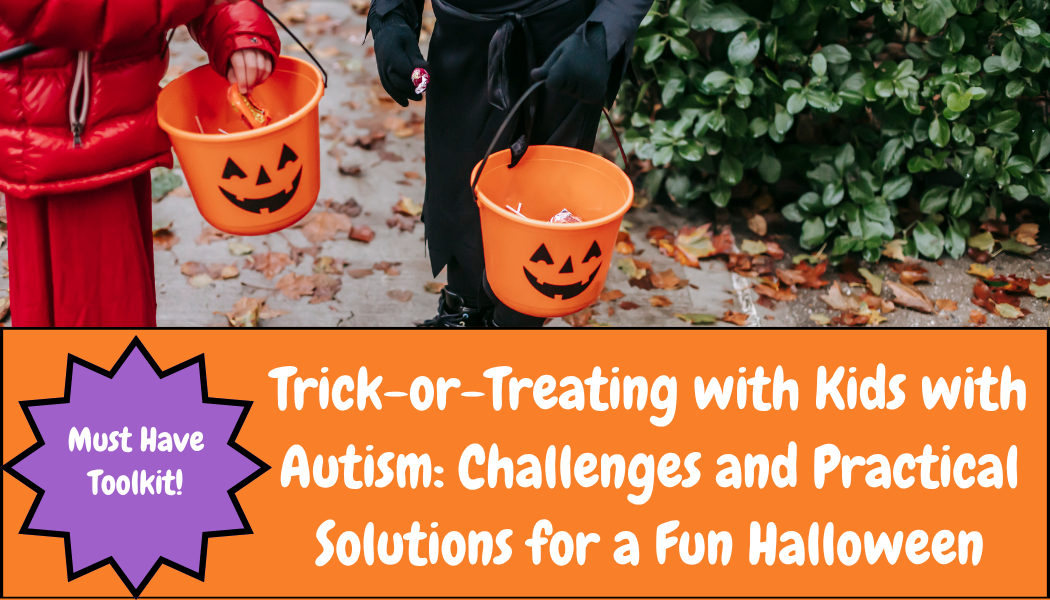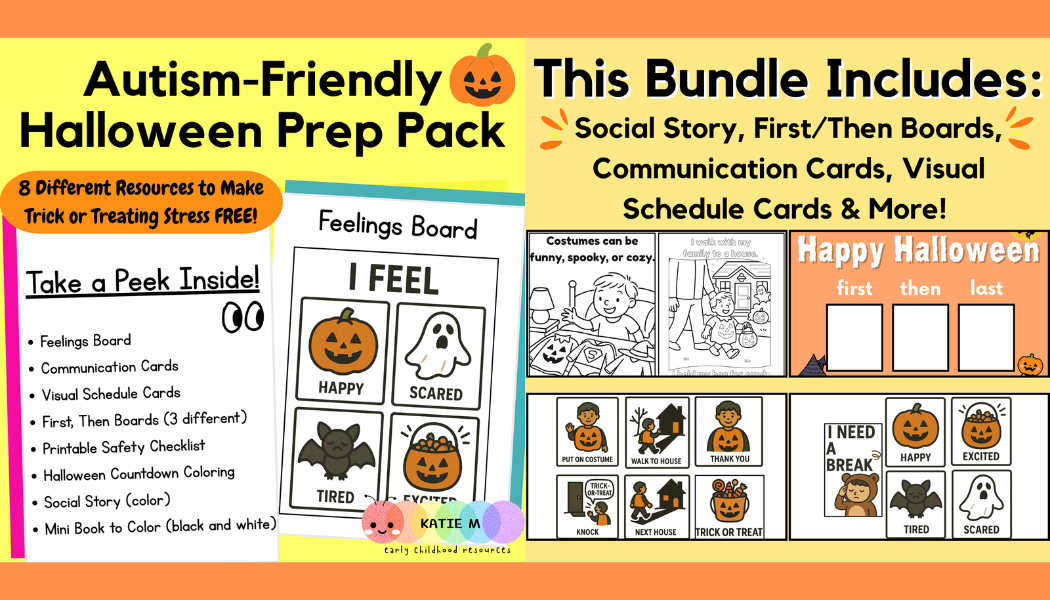Trick-or-Treating with Kids with Autism: Challenges and Practical Solutions for a Fun Halloween
Halloween can be one of the most exciting nights of the year for children—dressing up, collecting candy, and celebrating with neighbors. But for children with autism, trick-or-treating can bring unique challenges. As an early childhood autism specialist, I’ve worked with many families to make holidays like Halloween more accessible and enjoyable. With the right preparation and support, trick-or-treating can be a fun, safe, and memorable experience for the whole family. Read below and get ready for a stress free Halloween!
Common Challenges Kids with Autism May Face on Halloween
Sensory Sensitivities
Costumes may be itchy, masks may feel restrictive, and flashing decorations or loud noises can be overwhelming.Social Interactions
Saying “trick-or-treat” or engaging with strangers at the door can be difficult for children who struggle with communication or social skills.Changes in Routine
Halloween is not a typical day—it involves going out at night, knocking on doors, and eating different foods. This unpredictability can create stress or anxiety.Dietary Restrictions
Many children with autism have food allergies, sensitivities, or dietary restrictions that make traditional Halloween candy a challenge.Safety Concerns
Crowded neighborhoods, crossing streets in the dark, or wandering can be a concern for families.
Practical Solutions for a Positive Trick-or-Treating Experience
Here are some strategies I recommend to families preparing for Halloween with a child on the autism spectrum:1. Prepare with Visual Supports
Use a visual schedule or social story to explain the steps of trick-or-treating:
Put on costume
Walk to house
Knock on door
Say “trick-or-treat” or hold out bucket
Say “thank you”
Go to the next house
Previewing what will happen helps reduce anxiety and builds confidence.
Grab my Halloween Toolkit with visuals here!
2. Choose Comfortable Costumes
Skip scratchy fabrics or masks if they cause discomfort. Instead, try soft pajamas, a themed t-shirt, or accessories (like animal ears or a cape). Comfort should come before appearance.
3. Practice at Home
Do a “mock trick-or-treat” around your house. Knock on bedroom doors, hand out candy, and practice saying (or showing a card with) “trick-or-treat.” This helps your child feel more confident before the big night.
4. Support Communication Needs
If your child is nonverbal or uses an AAC device, create a Halloween button or card that says “Trick-or-Treat.” This makes participation easier and helps neighbors understand. You can find one in my Halloween Toolkit here.
5. Bring Sensory Tools
Noise-canceling headphones, fidgets, or a small comfort item can help your child manage sensory overload. Take breaks as needed.
6. Stick to Familiar Routes
Trick-or-treat in a neighborhood your child knows or visit only a few trusted houses. Shorter outings can be just as fun and less overwhelming.
7. Have a Candy Plan
Sort candy together at home. Swap out items that don’t fit your child’s diet with safe alternatives. Some families use the “Switch Witch” tradition, trading candy for a toy or book overnight.
8. Set Clear Expectations
Let your child know ahead of time how many houses you’ll visit, when you’ll go home, and what happens afterward. Clear boundaries help prevent meltdowns.
9. Consider Alternatives
If trick-or-treating feels too stressful, try alternatives like a trunk-or-treat event, a small family candy hunt, or a Halloween movie night. The goal is to celebrate in a way that feels right for your child.
Final Thoughts
Every child with autism is unique, and so is every Halloween. With preparation, flexibility, and a focus on your child’s comfort, trick-or-treating can be a joyful experience. Remember—it’s not about how many houses you visit or how full the candy bucket gets, but about creating positive memories together.
Must Have Resource for Families!
Want extra support? Download my Halloween Toolkit for Kids with Autism. It includes multiple resources including picture cards and a ready-to-use social story to help your child enjoy trick-or-treating with confidence plus more! Check it out here!

